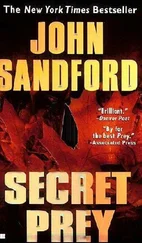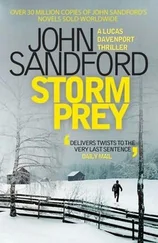“What about Carver?” Lucas asked.
“Carver was the last guy out of the house. Turns out, the Taliban guys they’d handcuffed were executed. So were the bodyguards, and two of them were kids. Eleven or twelve years old. Armed, you know, but . . . kids.”
“Yeah.”
“An army investigator recommended that Carver be charged with murder, but it was quashed by the command in Afghanistan—deaths in the course of combat,” Kidd said. “The investigator protested, but he was a career guy, a major, and eventually he shut up.”
“Would he talk now? I need something that would open Carver up.”
“I don’t think so,” Kidd said. “He’s just made lieutenant colonel. He’s never going to get a star, but if he behaves, he could get his birds before he retires.”
“Birds?”
“Eagles. He could be promoted to colonel. That’s a nice retirement bump for guys who behave. But, there’s another guy. The second-to-the-last guy out. He’s apparently the one who saw the executions and made the initial report. He’s out of the army now. He lives down in Albuquerque.”
“I’ve got no time to go to Albuquerque,” Lucas said.
Kidd shrugged: “That’s your problem. I’m passing along the information. He’s there, he apparently had some pretty strong feelings about what he saw. They might even have pushed him out of the army. Up until then, he looked like he’d probably be a lifer. Same general profile as Carver’s, but a few years younger. He was an E-6, a staff sergeant.”
“You got a name and address?”
“Yeah, I do. Dale Rodriguez is the name.” Kidd dug into his hip pocket, pulled out a sheet of white paper. “Here’s the address.”
Lucas took the paper, stuck it in his own pocket. “How do I explain finding this?”
“On those docs you got from the army records center, Carver’s last unit is listed. If you search for the unit on Facebook, you’ll find a half-dozen different guys listing it as part of their biographies. Rodriguez is one of them.”
“Ah. I’ve got a researcher who is good with Facebook and all that.”
“You might have to get in touch with all of them as a cover for contacting Rodriguez.”
“That can be done,” Lucas said.
“And keep me out of it.”
“You’re gonna have to tell me someday how you come to have access to all this information. Government secrets. It can’t be legal,” Lucas said.
“Probably not entirely legal,” Kidd said, scuffing along the street. “I’ve been doing this forever, from before there was an Internet. My access just grew. From the early hacking days, fooling around, back in the eighties. Now . . . I do databases. When I do computers at all, which isn’t that often anymore.”
“With a specialty in revealing secrets.”
“Not really,” Kidd said. “Sometimes I go looking for information, and I stumble over stuff that should be out there, in public. Secrets that shouldn’t be secrets. Some stuff should be secret—I’m not going to give away any biowarfare docs—but a lot of other stuff is criminal and gets covered up.”
“I’m seeing some of that right now, on the local level,” Lucas said.
“Yeah. Embezzlement gets covered up, nepotism, favors for special groups or corporations that can run into billions of dollars . . . special access. At the federal level, a lot of it gets classified one way or the other. I see no reason to honor that. It’s crime, plain and simple.”
CHAPTER 16
Dannon was waiting by the door when Taryn got back, late, from a campaign rally. She was getting beat up: she’d been to East Grand Forks, on the North Dakota border, early that morning, had flown to International Falls, on the Canadian border, in the afternoon, and in the evening, had been in Duluth, on the Wisconsin border, where the cars met her and brought her back home.
The campaign had been shifting: it was all TV, and appearances that were sure to make TV, especially in those cities where they could still move votes. No more one-on-one talks, no more gatherings of the influential money men. It was too late for that. Now, it was all the downhill rush to Election Day, three days out.
When Taryn came in the house, trailed by Carver, Alice Green, and Connie Schiffer, the campaign manager, Carver peered at Taryn, hard, and she gave a terse nod and said to Green, “We’re all done, Alice. You can take off. Six o’clock tomorrow morning.”
Green said, “Thank you, ma’am. Six a.m. You try to get some sleep.” Green turned and left.
“Good advice,” said Schiffer to Taryn. “My butt is worn-out. And that goddamn Henderson.”
“At least he gave us a little break,” Taryn said. The governor had emphasized, at his press conference, that Tubbs had probably been working alone. Smalls, at a later press conference, hadn’t challenged that assessment, and had said that it was time to get the election back on track. “Henderson seemed like he was trying to get everything back to neutral.”
“I’d prefer a neutral in our favor,” Schiffer said. “But you’ve got to be ready for the questions, tomorrow, about this Knoedler girl.”
“Yeah, yeah . . .” Taryn waved her off: they’d talked about it in the car. “If you think of anything else, call me on the way home: I’ll be up for another half hour.”
“No Ambien,” Schiffer said. “We don’t need you stoned or sleepwalking if we wind up on one of the earlier shows.”
Taryn nodded and said, “Take off.” And to Carver and Dannon, “Set up the security. I’m going to look at the schedule and think in bed for a while.”
Schiffer left, pausing to say, “We’re still good. We’ve got four points, but we can’t take any more erosion. Two points and we’re tied and we lose control.”
“Gotcha.”
• • •
AS SCHIFFER WAS LEAVING, Dannon asked Carver to do a serious look around the yard. One of the radar buzzers had been going off, Dannon said, and he hadn’t been able to isolate why.
“Probably another goddamn skunk,” Carver said. He pulled his jacket back on and went to look.
When he was gone, Taryn turned to Dannon and asked, “What?”
“I talked to Quintana,” Dannon said. “He says that Davenport somehow figured out where the porn came from. He and the internal affairs officer at the Minneapolis Police Department are digging around, and Quintana says his name is going to come up. He thinks he can stay clear—but before he knew that Davenport was digging around, he went over to the Smalls campaign headquarters and talked to . . . the woman who set up the trap.”
“Not this Knoedler girl?”
“No.”
“That’s a relief,” Taryn said. “Might as well tell me the name of the real one.”
Dannon shook his head. “Not yet. Really, it’s a psychological issue—it’s hard to fake surprise or confusion if you’re not surprised or confused. Anyway, Quintana is afraid that if Davenport finds the source, she’ll tell him that Quintana already talked to her. And there’s no good reason he should have . . . or that he should have talked to her specifically. So if she mentions Quintana, they’ll know he was likely the source of the porn, and he’s in very deep shit. Like, going-to-prison deep shit. At that point, we don’t know what happens. He didn’t make any threats, but I gotta believe that he’ll cooperate if he’s given a break. Quintana doesn’t know who I am, but he’s a cop, and if I’m dragged into this, he might recognize my voice.”
“What are you saying?” Taryn asked, one hand on her hip, her fist clenched.
Dannon hesitated, then said, “I think this woman . . . has to go away. If she goes away, she can’t give up Quintana.”
“Oh, Jesus Christ.”
She stared at him for a moment, and he said hastily, “Don’t worry about it. Don’t think about it.”
Читать дальше







